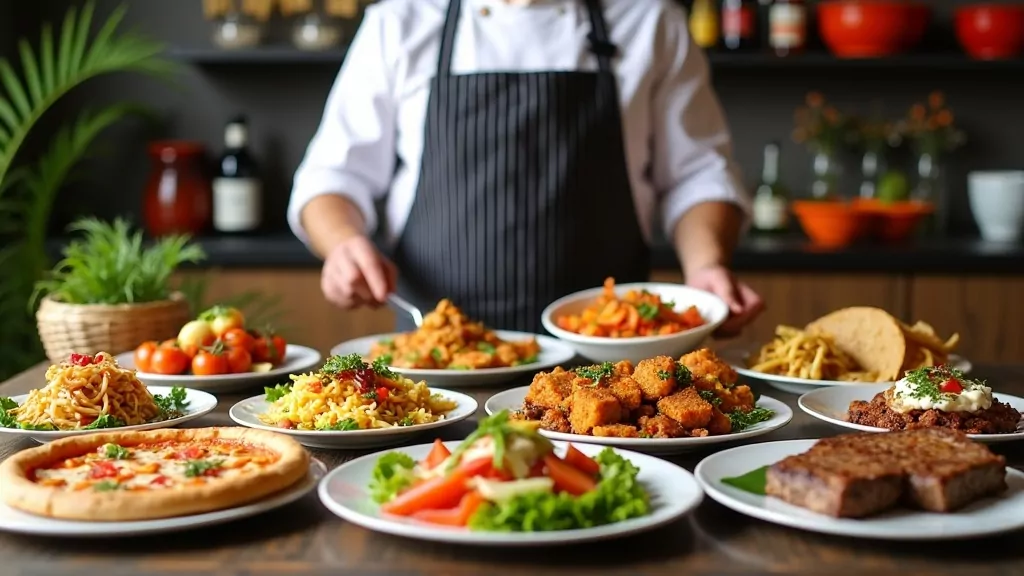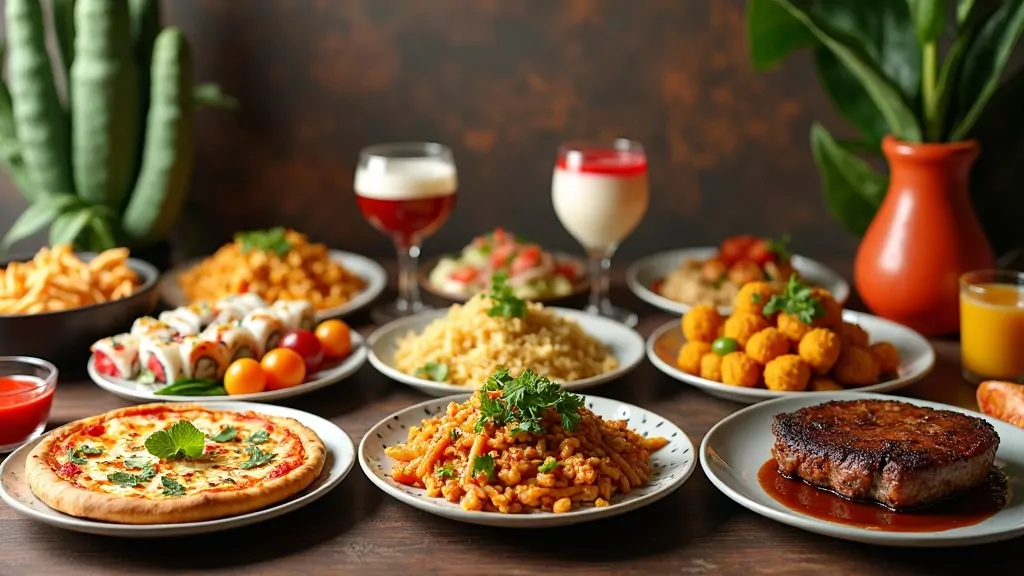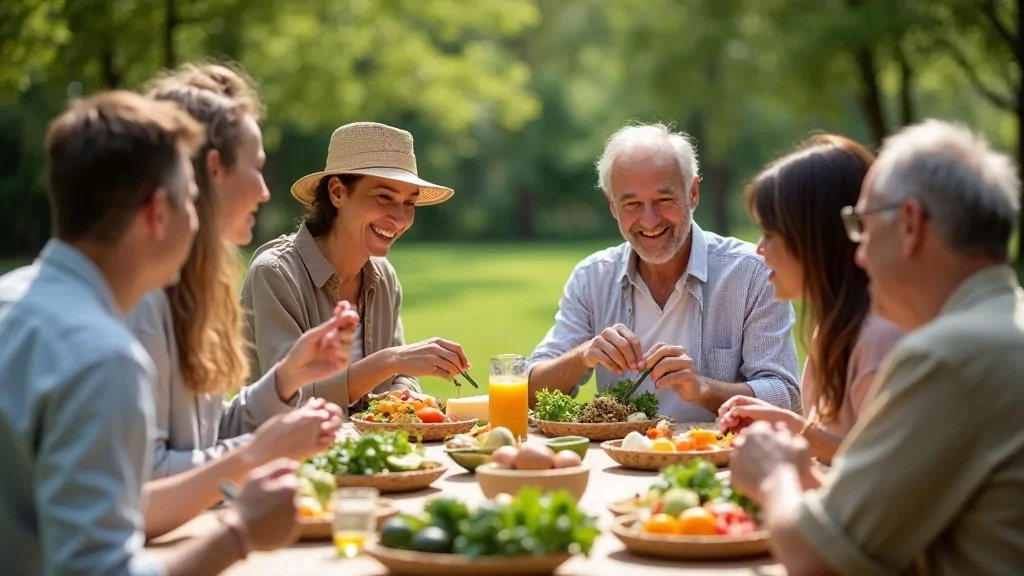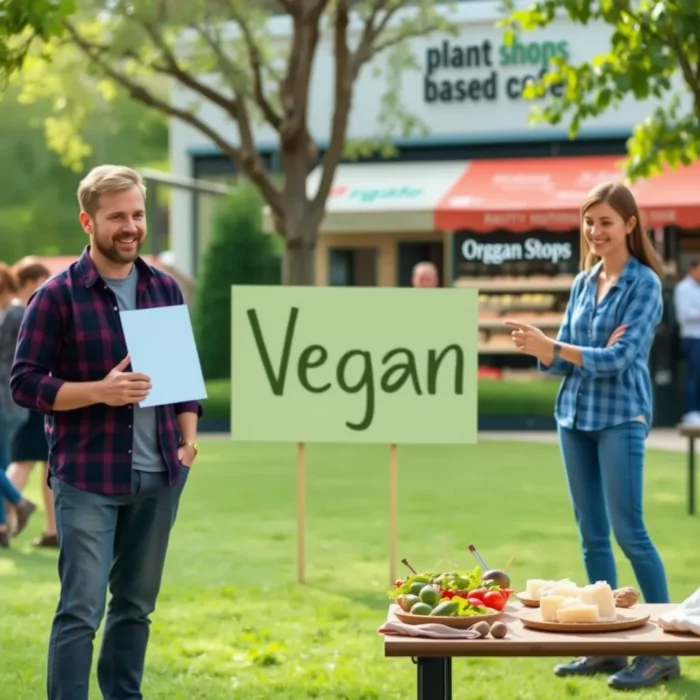
Different countries have different food cultures – why is that?
Food is not only about satisfying physiological needs, but also an important aspect of the cultural identity of each nation. The gastronomy of different countries often becomes one of the most interesting reasons for traveling. Why do different food cultures differ so much depending on the region? The answer is hidden in the intertwining of history, geography, traditions and economic characteristics and social structure.
This is due to the fact that everywhere there are different animals and plants, and living conditions are also different. In Italy, for example, the climate and soil are not at all the same as in China or Japan. The climate of China is favorable for growing rice, where it is one of the important food products. And in Italy, on the Mediterranean coast, people eat a lot of fish and seafood. People eat what grows best in their country.
It is also connected with cultural influences and even religious beliefs, hence the different food cultures.

For example:
- Italy is famous for pasta, pizza and various cheeses.
- Japan is known for sushi, ramen and teppanyaki.
- Mexico offers tacos, burritos and nachos with spicy sauces.
- India is known for curry, dishes with a lot of spices and naan bread.
- France (Europe) is famous for its croissants, baguettes, cheese and exquisite desserts.
- Ukraine has its own traditional dishes, such as borscht, varenyky and deruny.
- In Africa and Asia, dishes that include spices and herbs that add a deep taste and aroma to food are often found.
Each country has its own cooking characteristics, which allows you to better understand its culture and traditions.
Therefore, the diversity of food in different countries of the world is a reflection of the historical, cultural and natural conditions of each people. Each country has its own cooking characteristics, which allows you to better understand its culture and traditions.
Who are vegetarians and their different food cultures

Vegetarians are people who consciously exclude meat, fish and seafood from their diet. Their diet is based on plant-based foods such as vegetables, fruits, grains, nuts, legumes and dairy products (if allowed by their diet).
There are different types of vegetarian diets:
- Lacto-vegetarianLacto-ovo-vegetarians,
- Lacto-vegetarians
- Ovo-vegetarians
- Vegan
The reasons for choosing vegetarianism can be different:
- Ethical beliefs (protection of animals).
- Concern for health.
- Ecological considerations (reducing the impact on nature).
- Religious or spiritual beliefs.
Lacto-ovo-vegetarians

The most common type of vegetarian is Lacto-ovo-vegetarian. They do not eat meat, fish, or seafood, but do include animal products in their diet, such as:
- Dairy products (milk, cheese, yogurt, butter, etc.).
- Eggs.
This approach allows you to maintain a balance of nutrients, getting enough protein, calcium, B vitamins, and other beneficial elements.
The reasons why people choose lacto-ovo-vegetarianism can be ethical, environmental, or health-related. This diet is less strict than veganism and is often easier to follow, as dairy and eggs are widely available and versatile in cooking.
Lacto-vegetarians
Lacto-vegetarians are vegetarians who exclude meat, fish, seafood, and eggs from their diet, but do consume dairy products, such as:
- Milk.
- Cheese.
- Yogurt.
- Sour cream.
- Butter.
This approach allows them to obtain important nutrients, including protein, calcium, and vitamin B12, from dairy products, which are an important part of their diet.
Lacto-vegetarianism is common in many cultures and religions. For example:
In Indian cuisine, many people follow a lacto-vegetarian diet due to religious beliefs.
It is considered less strict than veganism, but still excludes other animal products, such as eggs or fish.
This eating style can be balanced if the diet is planned properly.
Ovo-vegetarians
Ovo-vegetarians are people who exclude meat, fish, seafood and dairy products from their diet, but eat eggs.
The basis of their diet consists of:
- Eggs (boiled, fried, baked, etc.).
- Vegetables, fruits, greens.
- Grains (bread, cereals, pasta).
- Nuts and seeds.
- Legumes (lentils, chickpeas, beans).
This approach allows you to get high-quality protein from eggs, as well as important vitamins and minerals, such as vitamin B12 and choline.
Ovo-vegetarianism can be chosen for various reasons, such as:
- Intolerance to dairy products (lactase deficiency).
- Ethical beliefs related to the production of dairy products.
- The desire for a more varied diet.
This type of diet is less common than lacto-ovo vegetarianism, but is also viable if the right balance of nutrients is achieved.
Who are vegans?

Vegans are people who exclude all animal products from their diet. They follow a plant-based diet and avoid using any products or materials derived from animals.
What vegans exclude:
- Meat, fish, seafood.
- Dairy products (milk, cheese, butter, etc.).
- Eggs.
- Honey (due to the use of bees in the production process).
What vegans eat:
- Vegetables, fruits, berries.
- Grains (cereals, pasta, bread).
- Legumes (lentils, chickpeas, beans, tofu).
- Nuts and seeds.
- Plant-based milk substitutes (soy, almond, oat, coconut).
- Plant-based fats (olive, coconut oil, etc.).
Reasons for choosing veganism:
- Ethical: protecting animal rights and rejecting their exploitation.
- Environmental: reducing the impact of animal farming on the environment.
- Health: Some people believe that a plant-based diet is healthier for the body.
- Religious or spiritual beliefs.
Veganism extends not only to food, but also to a lifestyle. Vegans avoid leather, fur, wool clothing, cosmetics tested on animals, and other products associated with the use of animals.
For the most part, vegans are very active participants in the animal protection movement. Scientists and vegans still cannot find a common opinion on whether such a diet is beneficial or not.
Although gastronomy is becoming global in the modern world, preserving national culinary traditions remains an important task. This helps preserve cultural diversity and promotes the development of gastronomic tourism.
Anecdote of the day from the funster.top website:

— Why did you become a vegetarian?
— I decided I couldn’t eat people who were slower than me anymore.
— And how does that work?
— The salad has never run away before! 😄